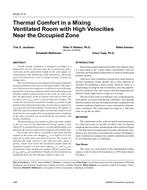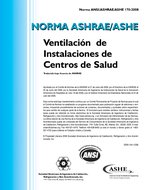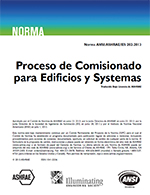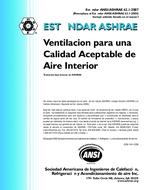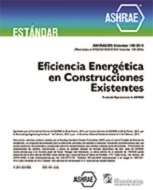Description
Usually mixing ventilation is designed according to a demand for low air velocities near the occupied zone and a restriction of the penetration length of the cold supply jet. Unfortunately, this method has some limitations, which may lead to an unnecessary use of energy because of large air change rates.
This work provides an investigation of design methods for mixing ventilation with respect to thermal comfort. The objective of the present investigations is to find new ways of designing the flow in mixing ventilation while still maintaining good thermal comfort around persons in the room. In order to do this, the importance of the jet velocity when the air enters the occupied zone (uocz) above a person has been studied. The connection between the penetration length (xs) and the length from the inlet to the point where the air enters the occupied zone (xocz) has also been in estigated. Furthermore, the manner in which the type of ventilation affects the thermal comfort in the room has been investigated by using displacement ventilation in the same room that was used during the experiments with mixing ventilation.
All measurements were made in a full-scale room, similar to the one used in the International Energy Agency work, Annex 20. To simulate heat sources, two thermal manikins were placed in the room at a desk with a computer and a table lamp.
The results show that it is possible to get good thermal comfort in the room even though u ocz is as high as 0.35 m/s when the jet falls down just above a person. The reason for allowing this high velocity is the convective flow above a person, which slows down the downward airflow from the ventilation system. It is also shown that uocz, xs, and xocz are all functions of the Archimedes number and new expressions for uocz and xocz are established. Finally, it is shown that mixing ventilation gives the best thermal comfort in this case.
Units: SI
Citation: Symposium, ASHRAE Transactions, vol. 108, pt. 2
Product Details
- Published:
- 2002
- Number of Pages:
- 7
- File Size:
- 1 file , 1.5 MB
- Product Code(s):
- D-8945
